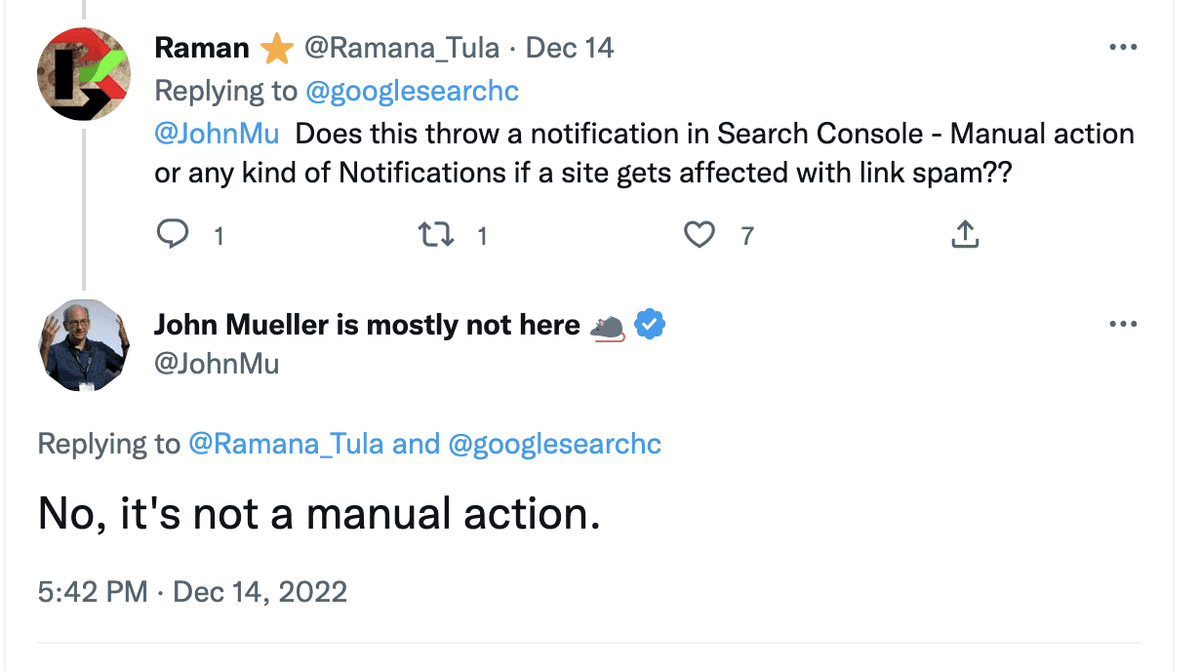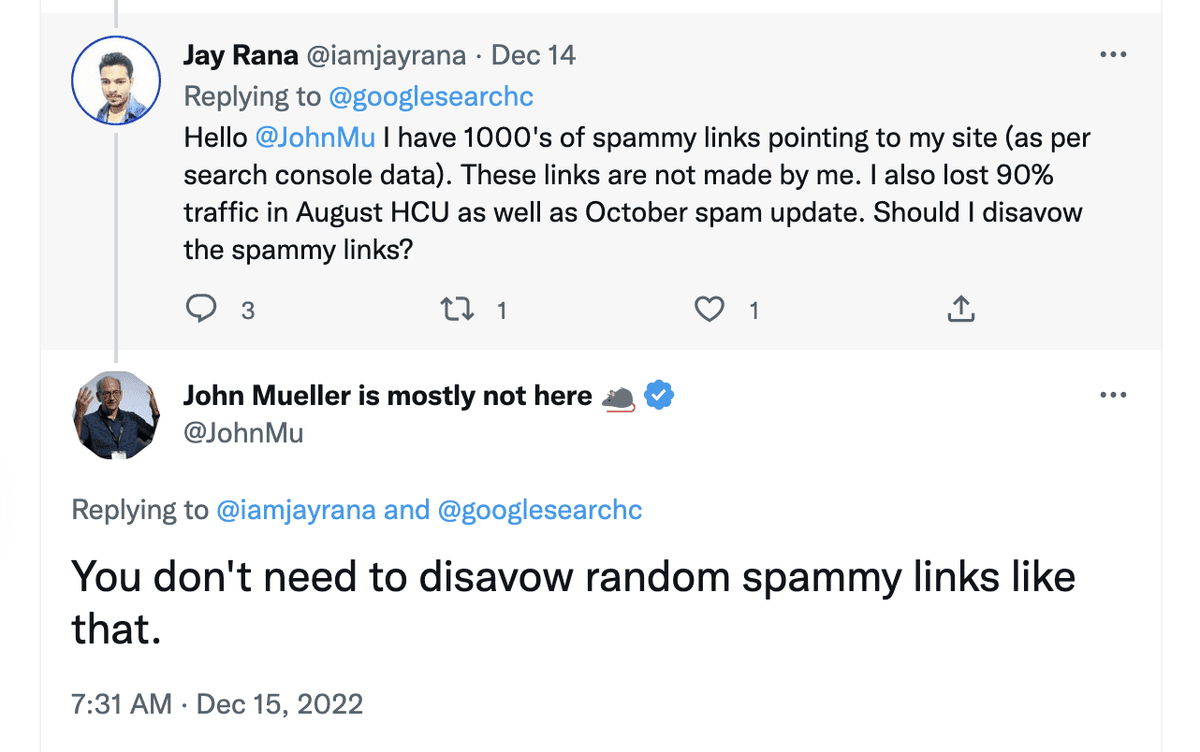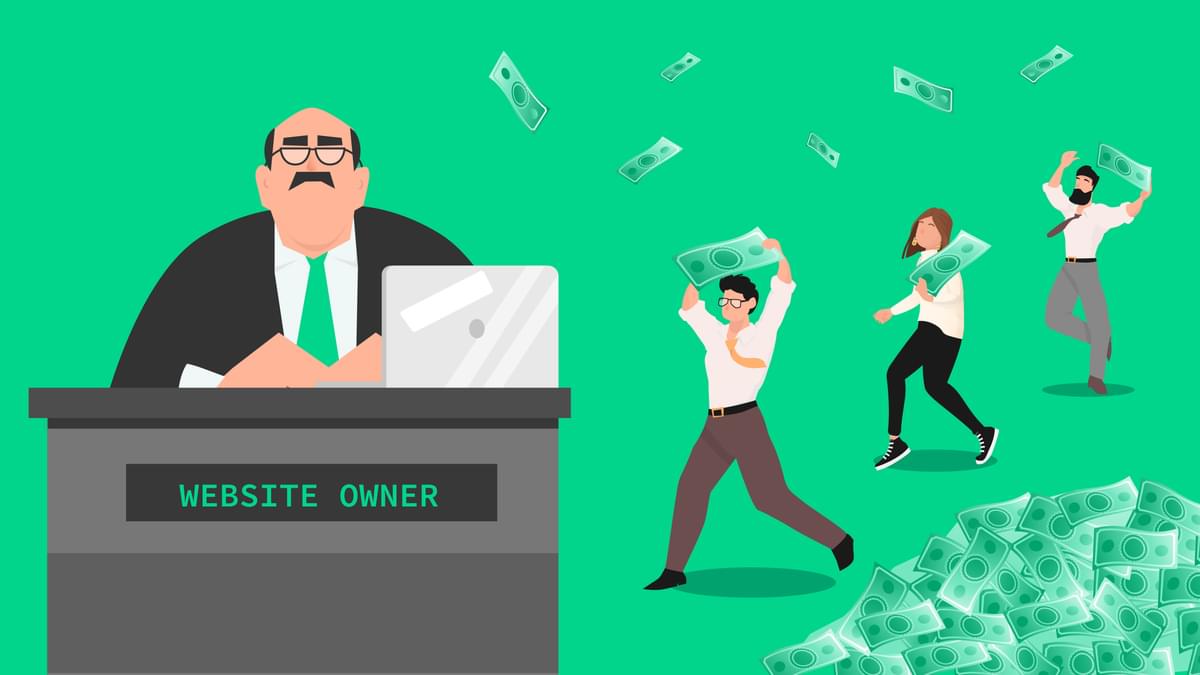
On December 14th 2022, Google released a new update aimed at combating link spam.
Here's what Google said...
“SpamBrain is our AI-based spam-prevention system. Besides using it to detect spam directly, it can now detect both sites buying links, and sites used for the purpose of passing outgoing links.”
How Does The New Link Spam Update Work?
Essentially, Google has said that their new update can now more easily detect sites that are selling links, and nullify any links from those websites.
Here's what has changed in a nutshell:
- Google can now detect sites that are selling links more easily
- Google will now 'ignore' any previous value that those links were providing
- However, they are not punishing people for having those links. They're simply ignoring their value
This means that if you've bought links from a site that's selling a ton of links and has low quality content, chances are Google has now nullified any value or gain from those links.
It's important to note that this is an algorithmic update.
That means you won't know for certain if you have been affected by the update, and Google is not handing out any manual penalties as a result of this update.

Once again, Google is simply now nullifying links from sites that are deemed to be low quality and selling large numbers of links E.G. link farms.
Incase you're suddenly panicking about spammy links going to your website, don't be.
John Mueller highlighted that you don't need to worry about spammy links pointing to your site, because Google is now incredibly good at simply 'ignoring' those links.

This is why we advise against disavowing backlinks unless you absolutely have to, because Google now prefers the strategy of 'ignoring' spammy links rather than penalizing against those links.
How Should I React to This Update?
First of all, you should not make any knee-jerk reactions whenever Google releases any new update.
It's still rolling out over a number of weeks, and if you do see a drop in traffic, it's going to be difficult to figure out if it's a direct result of this update or other Google updates.
In this particular case, Google also released the 'helpful content update' on 5th December, which favours helpful content written by people for people, rather than heavily SEO-optimized content that lacks a certain human touch and feel.
This is largely perceived to be an update to fight back against AI writers.

What Links Should I Focus on Building?
This update certainly means that high-quality backlinks just became much more valuable.
Here are the types of links you should really focus on going after:
- Guest posts from legitimate publications that don't accept payments
- Links from sites that don't frequently sell lots of backlinks and therefore don't have a clear and obvious footprint of selling links
- Link exchange or partnership-style links, from high quality sites that don't accept payment
- HARO links from legitimate publications
- Broken link building & link reclamation
- Links from sites that generally have a very high-level of editorial oversight & useful content. Even if there are some paid links on those sites, there's no way Google is going to blacklist those sites.
What Links Should I Avoid?
This update does suggest that the game is up for lots of low-quality link farms, and other websites that exist only for the purpose of selling backlinks. There has been a proliferation of these types of sites over the past couple of years, and it's becoming a serious problem.
I applaud Google for taking steps to combat those link farms, and try to devalue the power of these spammy links.
If you've been using services that aim to build you links at a lower budget level, you should seriously consider the quality and domains you're getting links from, because with this update you may now be genuinely flushing money down the toilet.

But How Can Google Detect Those Links?
To be honest, it's got to be very easy for Google to spot sites that have a clear pattern of selling links. I'd imagine any intelligent college student studying machine learning could probably do this.
There's a number of red-flags that Google will be able to pick up on, for example:
- Sites that have been repurposed to sell links (e.g. expired domains)
- Sites that are publishing content in multiple categories despite not being authority sites
- Sites that have a pattern of clearly linking to outbound commercial pages with bad anchors
- Low-quality content that doesn't fit into a clear editorial pattern
- An unnatural number of outbound links to inbound links
- Sponsored post or 'write for us' pages / footprints that don't feel like they have a high-quality criteria or editorial oversight
- Sites from certain industries buying links on those sites e.g. casino, legal, finance sites - who have no real business to have links there.
- Looking at link neighborhoods from sites they know have bought links and identifying those patterns
And I'm sure Google will have a weighting system to likely categorize these and identify 'definite offender' websites, where they're 100% certain those sites are link spammers.
Where We're Still Skeptical
I think there are still some very important questions to be raised with this update.
It's definitely important to take Google's opinion and updates as gospel, since there have been utterly countless link updates over the years, and Google has already stated many times in the past that they're amazing at detecting unnatural links.
Some questions to ponder:
- What if Google finds a site that could be selling a small number of links, but their AI can't tell for sure?
- How can Google actually tell categorically with evidence if a website is actively selling links using AI?
- Does Google have an internal blacklist of sites that they've just devalued links from entirely? (They must do)
- And if they do have an internal blacklist, it would suggest that they'll only have sites on there that they know for sure are breaking their rules.


